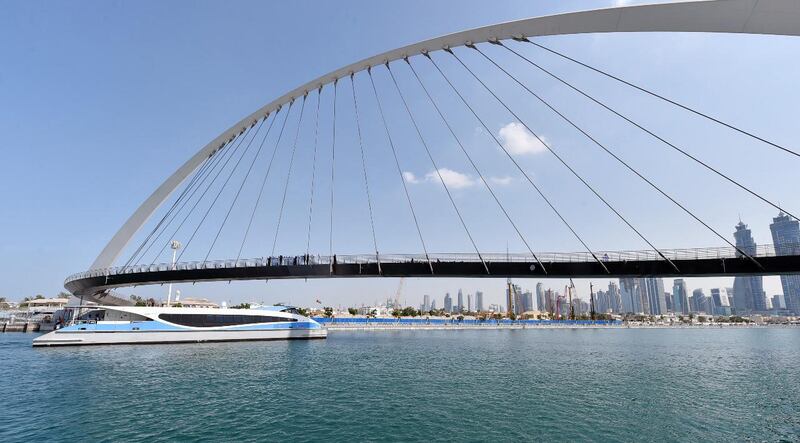In an age when our social media feeds serve up an increasingly narrow, self-endorsing view of the world, cultivating tolerance has never been more important. We may have access to more information (or misinformation) than ever before but, often, the information we are choosing to consume only reinforces viewpoints that mirror our own.
We also tend to surround ourselves with people that are like us – those that share our values and whose experiences are reminiscent of our own. I am so used to speaking to people that support my views on immigration or Brexit or women’s rights, that it is often a shock to discover that there are actual, real people out there that hold completely opposing views. I mean, I read about them in the news, so on some level, I understand that they exist – but in my head, they are an imaginary, intangible entity, and I am still surprised whenever I encounter them in the flesh. In truth, however, it is important to engage with these “others”. It is important to hear them out and disagree respectfully, for it is only when your views are questioned and challenged that you can truly put them to the test.
To coincide with International Day for Tolerance today, the UAE is hosting the two-day World Tolerance Summit, where around 1,500 government leaders and peacebuilders from around the world have gathered “to discuss the importance of tolerance, peace and equality, and to celebrate diversity and harmony between people, regardless of ethnicity, religion, political approach, and cultural and social backgrounds”.
_____________________
Read more of Selina's thoughts:
From Dubai to Abu Dhabi: some lessons learnt on a long commute
Let’s not be blasé about the range of opportunities Dubai has to offer
Missing out on family milestone events. Is this the real expat tax?
Two performances of 'Swan Lake' show how Dubai's cultural scene has found its feet
_____________________
The timing of the summit is all the more poignant given that it comes in the same week that the world commemorated the 100th anniversary of the end of World War I and French president Emmanuel Macron warned that “old demons” were resurfacing, with history threatening “to take its sinister course once again”. History has taught us all too often what happens when tolerance wanes and self-interest take over. “By putting our own interests first, with no regard for others, we erase the very thing that a nation holds dearest, and the thing that keeps it alive: its moral values,” Macron insisted. With extremist ideologies and hate speech and crimes on the rise across the world, we ignore his words at our peril.
This takes a macro-view of tolerance, but it is up to us as individuals to practise it on a micro, human, everyday level. And this is particularly important in the UAE where, as we are often reminded, individuals from more than 200 nationalities are all trying to co-exist and thrive.
Tolerance goes far beyond merely tolerating. It means we have to actively engage with the people we perceive as different to us – and try to empathise with them. It means asking about your taxi driver’s day and understanding how his experience of the UAE is different to yours. It means being respectful of the laws and customs of the country you live in, even if they are different to your own. It means understanding that, whether in the workplace or your favourite restaurant, not everyone does things the way you would, and that’s OK. It means accepting the fact that your way is not the only way, and never will be.
One of the greatest gifts my parents gave me was to bring me up in a multi-racial, multi-faith, multi-hued household. When your mother is Indian and your father is English and your brother was born in Oman and you live in Cyprus and your best friend is Syrian and you go to school with people from all over the world, it’s very difficult to harbour prejudices against anyone.
The UAE has the capacity to foster tolerance in a way that few other countries can. It has this incredibly diverse population with one single commonality: when you boil it down, we are, for the most part, all economic migrants in search of better opportunities for ourselves and our families. It is important for us to try to remember that one unifying theme. There is no denying that there are still strict social, nationality-driven hierarchies and barriers that need to be broken down, but there’s no better place to try. Being a resident of the UAE gives you this enormous opportunity to learn about other cultures, and expose yourself to different ways of doing and thinking about things, but that requires effort, everyday, from everyone.
As Audrey Azoulay, director general of UNESCO says: “Tolerance is an act of humanity, which we must nurture and enact each in own lives every day, to rejoice in the diversity that makes us strong and the values that bring us together.”
Created by our spiritual father Sheikh Zayed, UAE was born on the principle of tolerance. The World Summit for Tolerance comes to expand the concept in conjunction with World Tolerance Day under the patronage of H.H Sheikh Mohammed bin Rashid Al Maktoum, Vice President & PM (UAE) pic.twitter.com/HSTPkoMq9s
— World Tolerance Summit (@ToleranceSummit) November 14, 2018






